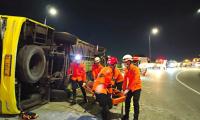Amidst the chaos and anxiety of the pandemic, may people have sought to understand why some nations have managed to momentarily succeed in this battle against the contagion while others, even those with ample economic and political power, have struggled. A glaring contrast in circumstances was particularly evident in March-May, when western nations teetered between procuring policies which would sustain their economies, and policies which would ensure the complete safety of the public, while some eastern nations, namely South Korea, China and Vietnam were able to “flatten the curve” much faster.
A common trend in the spread of the pandemic is that countries with populist leaders are faring poorly compared to other democratic models. The U.K., US, Brazil and India all have leaders elected to power through promises of aims to develop policies which compensate the anxieties of the public and not the experts or establishment. This mind-set is perilous during such a healthcare crisis when word of experts and scientific research provide the most reliable foundations to determine our next step forward. Already, the ramifications of this are strikingly clear. The UK has entered their largest recession, with its economy contracting 20.4% and the US with 5.49 million confirmed cases (as of 17th August), has the highest number of coronavirus cases in the world. Meanwhile Brazil and India follow closely behind at second and third most reported cases respectively.
The US especially has been under scrutiny worldwide for its handling of the pandemic. As a global power which has never experienced war or widespread disease on its land first hand, the US was used to cautiously inspecting such danger from afar without facing any direct destruction. While eastern countries like China, Singapore, Vietnam and South Korea had learned from previous experience with the SARS and MERs outbreaks, the US has had no such experience. In fact, as soon as the first coronavirus case was confirmed in Vietnam on 23rd January, its government ordered travel restrictions, the eventual closure of its border with China, and strict health checks. Whereas the US’s physical isolation and economic superiority blinded the nation into thinking they were invincible even in the wake of such a global crisis until it was too late. Preoccupied with assuaging the worries of the people, President Trump continued to disregard advice of health experts and misinformed states about the gravity of the coronavirus. These states started to ease lockdowns too early, when the US was still above the safety benchmark of 4 positive cases per 100,000 people.
In areas where certain restrictions and health care measures were put in place, people protested against them. Masks and shutdown of hair salons, gyms and other services are popular examples of this in the US. Masks were referred to as “submission muzzles” by a group called Reopen N.C on Facebook, and some Americans like Max Parsell, choose not to wear masks because “making individual decisions is the American away.” This strong streak of individualism evidently opens policies and crisis responses to fierce criticism in America, as compared to many eastern countries which are more accepting of authority and value a more communal approach to national issues, which in the pandemic seems to have proven especially beneficial.
According to the Guardian, even in Italy, frustration peaked as 40,000 people were pressed charges against for defying the lockdown measures put in place early March. Whereas South Korea’s government went one step further and deployed wristbands to track people who broke the quarantine in order to contain the outbreak. Such regulations would certainly not be tolerated in the more liberally democratic west.
In Confucian cultures of China, South Korea and Singapore, the government has a freer hand to exercise authority, and conformity is expected as nationalism holds more importance than individualism in society. This same case can to a degree, apply to Pakistan, where society is valued more than the individual. Protestation is commonly sparked by religious triggers or conflict over Kashmir, and though our public may complain and bash online, sweeping riots and protests for individualistic means, carried out by every socioeconomic class of our nation is not a phenomenon present within our culture. While this is argued to sometimes put many minority groups at a disadvantage in Pakistan, such complacency has seemingly proven to be beneficial for the first time, allowing many eastern nations to react effectively and more rapidly to the virus.
Sources: BBC, abc.net, Business insider, The Atlantic, The Washington Post















